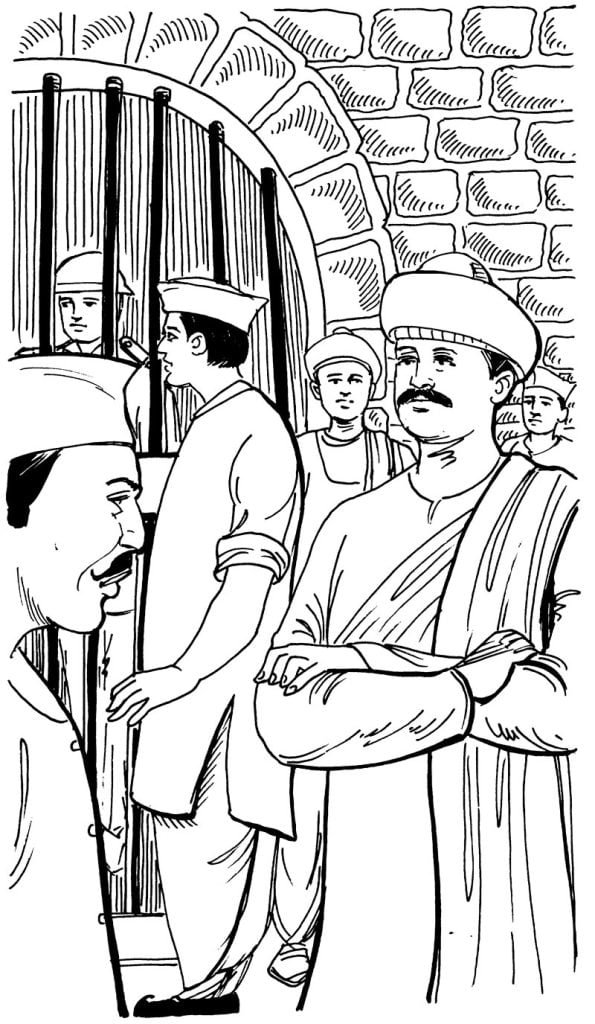Gokhale always was in favour of using the peaceful means of persuasion to settle disputes. But he was not the one whom other could use as a stage. His character was so upright that even the British government could not even think of making him its agent. He was not for sale otherwise he could have easily got any honoured and profitable high post.
The British conferred on him the title of the ‘Companion of the Indian Empire’. He accepted it so as not to antagonise the British. He wanted to use their goodwill for the good of India and its interests.
Because of his social services and the constitutional knowledge the British admired him. The hard liners of the Congress party tried to recruit him in their ranks. He craftily did not let them use him without making them enemies.

The government and the hard liners of Congress were on collision course. In Surat before the split of the Congress groups the government in England changed. The liberal Labour Party had come to power. A political philosopher, Mr. Marley became India Minister and Lord Minto arrived as the new Viceroy of colonial India.
It was a good omen for India.
On 14th April, 1906 Gokhale went to England for the third time mainly to press for political reforms in India and to highlight British atrocities in Bengal.
Gokhale met India Minister.
He also spoke in several meetings.
He revealed to the Britons how two crore people had died in India of starvation in a period of ten years. Seven crores of Indians partially starved, he said. He also spoke of the misdeeds of Lord Curzon and the governor of Bengal B. Fuller.
At his urging Marley and Minto agreed to look into the matter and asked Fuller for explanation.
Meanwhile the slogan of ‘Vandematram’ was raised in a Sirajganj High School. It infuriated Fuller. He asked Calcutta University to derecognise the school. Lord Minto tried to intervene.
But Fuller was hell-bent on punishing the school. He threatened to resign if action was not taken against the school. His threat was welcomed and his resignation readily accepted.
It had salutary effect on other officials of the government and they gave up their arrogant ways. It was a great relief to the people of Bengal.

Gokhale tried his best to make Marley take back the decision to divide Bengal. But the latter’s attitude was not positive on the division issue. Instead he agreed to set up a commission to probe the extent of cooperation between the government and the Indian people. Gokhale made it clear that only transfer of power to Indians would bring peace in India.
Meanwhile Bengal was in turmoil. Militancy was on the rise. The people were angry because of the government’s decision and the obstinacy on the division of Bengal.
Marley and Minto had developed friendly relations with Gokhale. They often wrote letters to each other. Gokhale had a feeling that because of the friendship he could squeeze some concessions for India from them. So, he wrote to Tilak not to criticise the two Englishmen too much in his weeklies.
Gokhale didn’t want them antagonised.
But to other Indian leaders it had become clear that Marley would never agree to freedom for India. The people also thought so.
So, Gokhale became a target of criticism.
Marley once had said—‘I could not give Indians moon. So they are angry with me. Granting moon is not in my power. I would not have given even if it were.’
In September, 1906 Gokhale returned to India.
The country was in bad state. Gokhale had achieved little in England. The people had become disenchanted with the soft liners of the Congress party. The stock of hard liners was rising up. The people were getting in the mood of confrontation.
